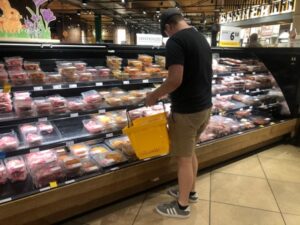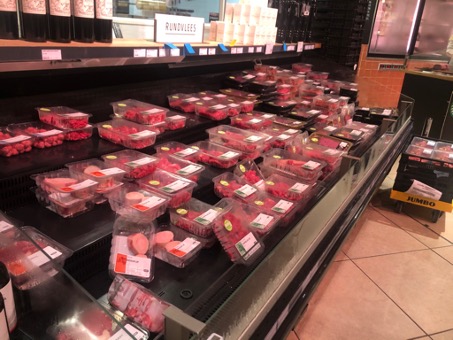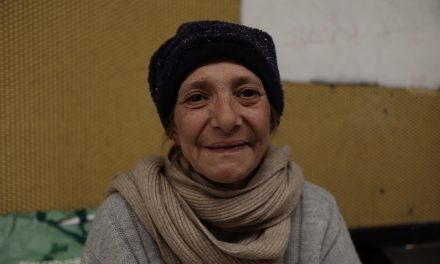June 11, 2020 – By Zenya Groosman
It has been eight years since the Dutch researcher Mark Post presented the first cultured meat burger. What happened after the introduction of the burger; Why isn’t Europe buying cultured meat in their grocery stores? And why are Singaporeans enjoying stem-cell produced chicken?
What exactly is cultured meat
Cultured Meat is meat that is created by painlessly harvesting muscle cells from a living animal, this can be a cow or a chicken for example. The harvested cells are then feed and nurtured so that they multiply and create muscle tissue. This muscle tissue can be compared with a regular piece of beef you buy in the grocery store. This sounds as a perfect solution to problems as the bio-industry, animal welfare and malnourishment.
Cultured Meat Market
When we zoom in on the cultured meat market, we can see that in the past year a lot of investments have been done in the sector, there are also multiple new companies established that have the aim to produce cultured meat. These details can all be found in a study of the Good Food Institute made by the University of Arizona. The study even states that 80 percent of the population of the United Kingdom and the United States are open to switch to cultured meat. This is great news for all the producers of cultured meat, there is definitely demand for cultured meat.
Currently Singapore is the only country in the world that approves the sale of cultured meat. Nevertheless, the innovation has been done in the Netherlands. Why isn’t the Netherlands selling the first piece of cultured meat? According to Ira van Eelen ‘’What’s happening in Singapore should have been happening in Europe’’ she stated this to a board adviser of Eat Just, the company that is producing the stem-cell chicken in Singapore. Ira van Eelen is known as the daughter of Dutch scientist Willem van Eeelen, who created and patented cultured meat. According to their own website the company East Just was hoping to launch in the Netherlands. Unfortunately, due to Dutch legislation of the Food Safety Authority (NVWA) this could not happen, first European approval needed to be received.

Cultured Meat Companies
Elise Janssens is an administrative assistant at the company Peace of Meat. Peace of Meat is a startup that was established in 2019 by Dirk Standaert. The company has developed a technology to produce animal fats in bioreactors based on stem cells. Elise was happy to share her knowledge about the cultured meat market and what part Peace of Meat is playing in this.
Elise explained that the average costs for a company to apply for permission with the European Commission lay between 20.000 and 45.000 euros, this is especially for an invention or ‘’new’’ food. Currently Peace of Meat is focusing on the B2B (Business to Business) market and hope in the future to expand to cultured meat. According to Elise, the market is currently not attractive enough. When applying for legislation a great amount of money needs to be paid. But when in the time that they are waiting for approval, they make an adjustment to improve their product, they must apply again and pay again the amount of money. Growing cultured meat is getting improved very rapidly, therefor it is not wise to apply now.
Another downside that plays a big part according to Elise is that when the product is approved, and legislation agrees. The product only gets five years of patent protection by the European Commission. In these five years only, the producer has the right to trade the European approved product. After that, any other cultured meat producer may use this production method.

What about the future
Currently it is looking like Europe is losing out on a sector that could bring change to the meat industry forever. According to Elise a lot of European companies are looking beyond the borders of Europe, trying to find a market where their products are faster approved. Another push back Elise is mentioning is the traditional way the European meat sector is set up. She mentions that the livestock industry tried to protect the description of ‘’meat’’, naming it meat could only be applicable on ‘’real’’ meat. Therefore, vegan or veggie burgers are not allowed to use the name ‘’meat’’ on their packaging.
There is still a long way to go if we are looking at the legislation and cultured meat in Europe. Nevertheless, companies are not giving up, research is still going strong, and new startups keep popping up. Hopefully the future will be bright and we are rather sooner than later also enjoying our piece of stem-cell grown chicken in restaurants.




